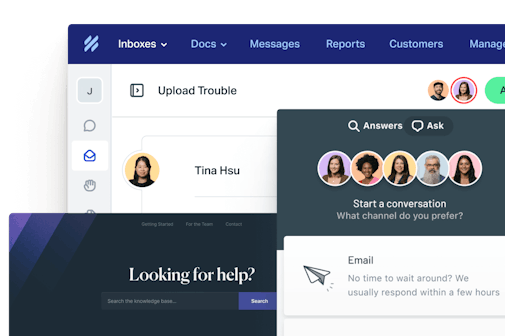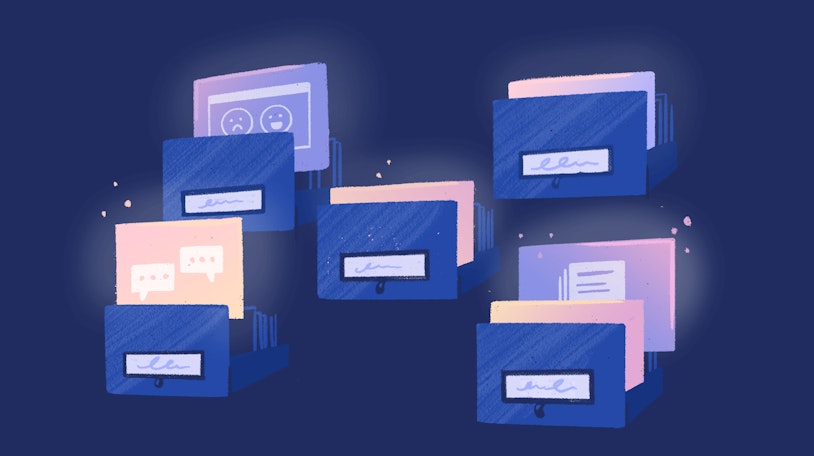If you’re an experienced support manager or agent, you’ve probably read some of your junior colleagues’ answers and been surprised at the approach they have taken. You might wonder, “Didn’t he notice the customer wants to know how to buy our new software, not just what its features are?” Or “Didn’t she see that the customer had two complaints, not just one?!”
Well, yes, of course they have the read the email. But today’s support professionals need a specific type of reading skill to comprehend customers’ often confusing and emotional incoming emails in the high-pressure, high-production contact center environment. Specifically, customer service agents need analytical reading skills. Without these focused reading skills, their email replies are destined to be incomplete and, worse, to cause more incoming emails.
What is analytical reading?
Analytical reading is a high-level cognitive skill. It’s important brain work! In customer service, analytical reading refers to an agent’s ability to read the customer’s email and figure out what the customer is asking, not simply what the customer is saying. This is the crux of analytical reading versus what could be called surface reading.
Here’s an example of analytical reading in action. The customer, Karen, emailed ABC Waste Disposal, the company that picks up her trash:
Dear ABC Waste Disposal,
I have a small, broken bookcase that I need picked up. I was also wondering if there was any way that we could get the larger recycling container? I have one of the small open boxes, but we fill it up too fast.
Thank you!
Karen Blume
An analytical reading of this email generates a list of five questions the customer is asking, both explicitly and implicitly:
Will you pick up my broken bookcase?
If so, is there an additional charge?
How do I arrange for you to pick up my broken bookcase?
Can I have a larger recycling container?
If so, do I need to do anything special to request it?
Analytical reading prepares an agent to provide all the information needed for the desired outcomes (picking up the bookcase and getting a larger recycling container), even if the customer didn’t know to ask the questions.
Watch my analytical reading webinar
Help Scout’s Mat Patterson and I spent an hour talking through the why and how of analytical reading. Watch the video right here, and read on below for further details too.
What happens when agents fail to read analytically?
Bad emails happen, that’s what. And many more emails than necessary happen because customers must send follow-up queries to get the answers they needed from the beginning.
Here’s the surface reading reply from ABC Waste Disposal to customer Karen:
Dear Karen,
We would be happy to assist you with a bulk pickup for your bookcase. If it weighs more than 50 lbs., please break it into two pieces for pickup. With your monthly service plan, there is no additional fee for one bulk pickup per month. Larger recycling containers are available, but they are not included in your monthly service plan.
Sincerely,
Howard Berg, Customer Service Agent - ABC Waste Disposal
Analytical reading would have yielded a better email from Howard. When agents read analytically, they commit to listing the customer’s questions before they write their reply. Agents who are skilled at analytical reading can do this automatically. Agents who struggle with this skill should list the customer’s questions in writing before they craft a reply.
Karen had five questions implied in her short, three-sentence email. Analytical reading by Howard would have led to a full response, like this one:
Dear Karen,
Yes, we would be glad pick up your bookcase. If it weighs more than 50 lbs., please break it into two pieces for pick-up. You can schedule the bulk pickup online or call us at 800-111-2222 to schedule it.
With your monthly service plan, there is no additional fee for one bulk pickup per month. I have reviewed your account, and I see that you have not scheduled a bulk pickup since August 2017, so there would be no charge for picking up the bookcase.
Larger recycling containers are available, but they are not included in your monthly service plan. There’s a monthly charge of $1.19 for the larger container. Please reply to this email and let me know whether you would like me to add the larger container to your account. We’ll deliver it to you within one week.
Sincerely,
Howard Berg, Customer Service Agent - ABC Waste Disposal
Why is analytical reading so difficult?
In customer service jobs, nearly all the conditions conspire against analytical reading, a cognitive task that requires focus, freshness, and emotional neutrality.
It’s difficult for agents to focus on individual emails from customers because there are just so many emails coming in.
It’s difficult for agents to read each email with fresh eyes because the questions customers ask are repetitive, and it’s natural for agents to feel that they’ve seen an issue a thousand times before and they know how to answer without reading thoughtfully.
It’s difficult for agents to read each email calmly, without getting defensive, when customers can be very emotional in their own writing. Customer emotion is a real impediment to analytical reading because the heightened feelings make customers’ emails long and disorganized. Customers just write more when they are upset.
Improving your customer service agents’ analytical reading skills
As with any goal of improvement, you’ll need to treat the skill seriously and budget coaching time for it. Here are two types of 20-minute informal training sessions that will help you boost agents’ analytical reading skills. Consider conducting each type of session weekly.
Oversee a simple read-around:
Gather your team of agents and distribute an email from a customer.
Explain/review what analytical reading is.
Ask everyone to read the customer’s email and list the questions the customer is asking, both explicitly and implicitly.
Emphasize how important it is for everyone on the team to list the same reader questions; this consistency in analytical reading is how teams are capable of giving consistent answers.
Debrief and discuss. Be prepared with the correct list of questions an accurate analytical reading would reveal.
Reverse engineer a customer’s email:
Choose an ideal response to a customer’s email, one where the agent used excellent analytical reading skills.
Gather your team of agents and distribute a copy of the response (don’t share the customer’s incoming email yet).
Ask everyone to read the agent’s response to the customer and, from it, reverse engineer the customer’s email. Specifically, you want them to list the questions the customer asked.
Debrief and discuss.
Show them the incoming email from the customer. Explain why this is an example of analytical reading. If the agent who wrote the email is willing, ask them to describe their reading and writing process.
Could you be making it harder for your support team to read analytically?
Absolutely. Even if your agents have great analytical reading skills, they can’t apply them in these conditions:
Too much emphasis on First Contact Resolution. If your favorite metric is FCR, you may be inhibiting your agents’ analytical reading. When preventing the second contact becomes the most important, most rewarded behavior, agents have little incentive to read analytically and figure out what the customer is really asking, which can occasionally cause a second contact. Many people consider FCR to be a “take my answer and go away” metric, so it’s not naturally compatible with analytical reading.
Overly high expectations for emails-per-hour. Your agents can answer tons of emails quickly or they can answer a smaller number of emails well. It’s up to you. With training, agents can become quicker and more accurate readers, but analytical reading is always going to be a little bit slower up-front than surface reading.
Web forms that don’t give customers the right ways to identify their problem. If your customers must use a web form to email you and the form gives them a too-narrow set of options for identifying their issues, you’re going to have analytical reading problems. For example, let’s say your web form requires customers to match the topic of their email to one of a short list of categories, but none truly fit. When that email arrives the agent who replies now has to read past the category label to read analytically. The web form has introduced a layer of confusion, which agents who lack analytical reading skills will find more difficult to overcome.
Relying too heavily on Saved Replies. Careful use of well-written Saved Replies or text snippets is helpful for consistent, high quality service, but they work best when agents are encouraged to select, adapt and extend them to suit the needs of individual customers. Give your agents the freedom and the responsibility to read analytically and then reply to emails in their own voice and with their own words, all the while keeping within the tone and language of your company.
Build a world-class support team that drives company growth and customer retention.
Analytical reading for improved communication
Some contact centers are just email mills. For this type of butts-in-seats support organization, improving agents’ analytical reading skills is rarely a priority. But well-run organizations recognize that providing good customer service requires a set of high-level skills. When agents need some training on an essential skill — like analytical reading — well-run organizations are prepared to provide that training. Don’t despair if your agents aren’t as good at analytical reading as you’d like. Implement ongoing coaching, and you’ll see their skills improve and, in turn, your customers more satisfied.








